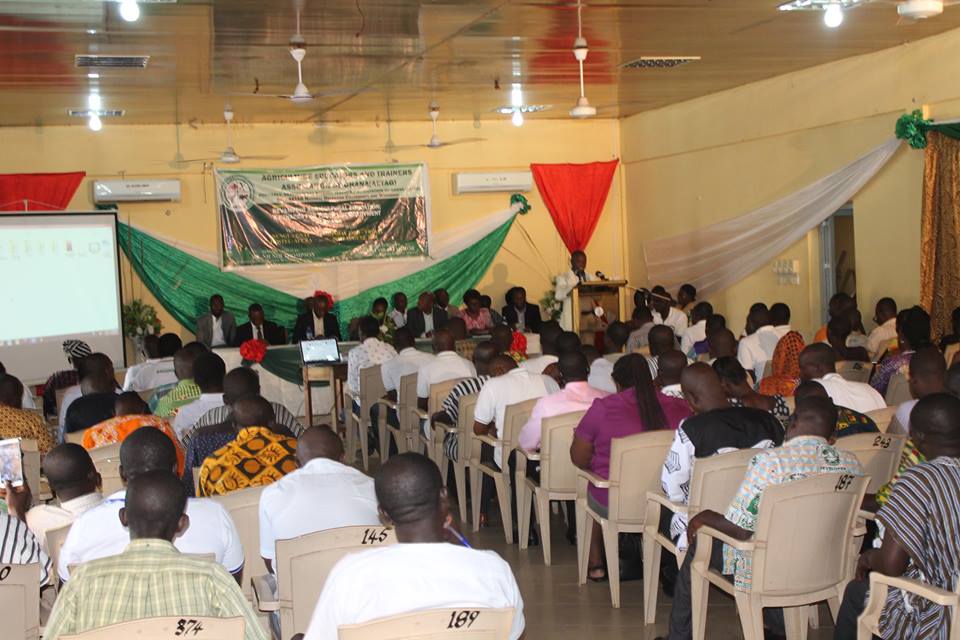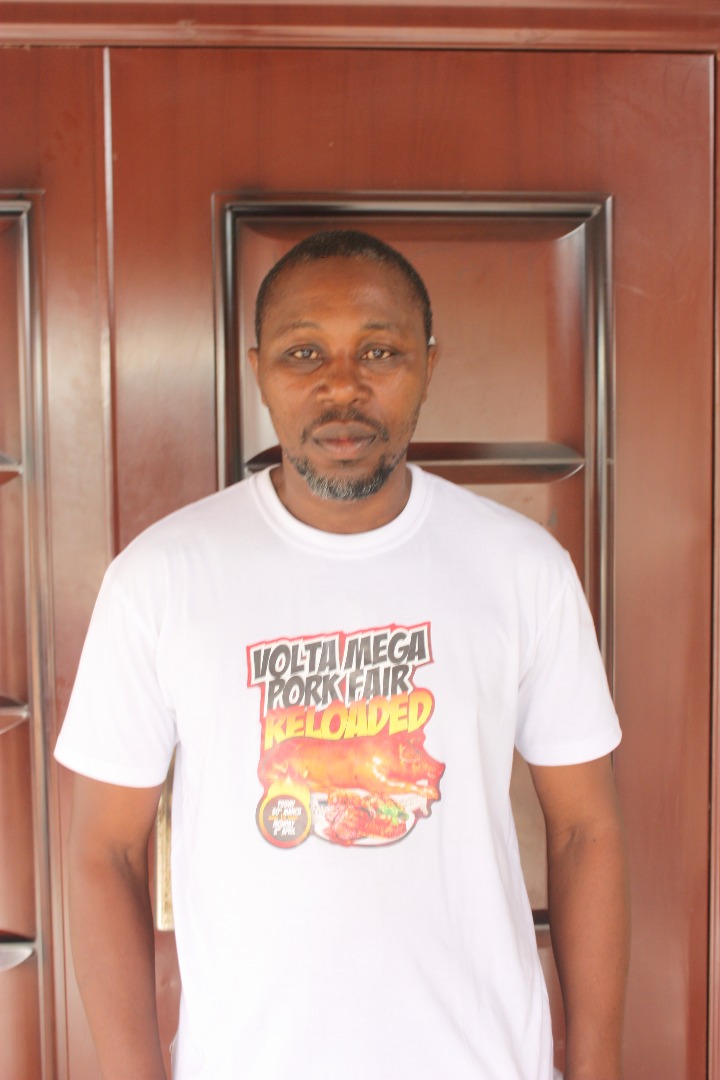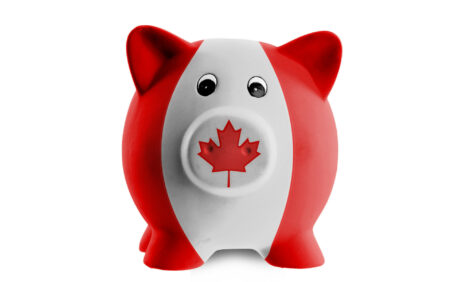



Volta Mega Pork Fair 2018
Efua Okai reports on the Volta Mega Pork Fair, based in Ho, Ghana, and explores the alternative feed supplements being used by modern-day Ghanaian farmers.The Volta Mega Pork Fair Reloaded, organised by the Progressive Pig Farmers’ Network, took place in Ho, the Volta Region capital, from Friday 30th March to Monday 2nd April. For a regional fair, the attendance and participation was impressive. Farmers and service providers in the pig industry took advantage of the forum to do pork business. But for the large numbers of people who trooped to the Ho Parks and Gardens, it was an opportunity to either be converted or renew their faith in all things pork, by sampling the wide varieties of dishes available. The success of the programme is also indicated by the confirmation that another fair will take place at Koforidua, the Eastern Regional capital, later in the year.

Mr George Kwaku Yeboah, President of the Network, expressed satisfaction with the amount of business done at the Fair. However, he said that the main objective was captured in the theme; developing the local swine value chain. He says that although large numbers of people have turned to pig farming, their total production amounts to far less than half the volume of imported products, and this is because of the virtual absence of an effective value chain.

Mr Yeboah explained:
"Just take a glance at the supermarket shelves. We import huge quantities of pork. And this is because there are clear gaps in the value chain. We need to attract local and foreign investment into commercial feed production, cold chain facilities and packaging. Some pig farmers are doing excellent work on their own, but we need to free farmers to concentrate on their core function. At this Fair, the workshop and business meetings were dedicated to this issue. I’m sure we will see some good results in the near future".
Thanks to collaboration between the Network and the Animal Research Institute, the quality of management on pig farms has been raised significantly. ARI is implementing the Creating Champions in Livestock Agribusiness (CCLEAR) training programme for pig farmers. In addition to running training programmes for members of the Network around the regions, it is also providing incubator services – in addition to accessing space and feed ingredients at moderate prices, pig farm start-ups receive constant technical advice. Some farmers at the Accra incubator site expressed the confidence on becoming major pork producers in the near future.
A major challenge for pig producers is the absence of commercial feed milling. Quite a number of pig farms buy the basic ingredients and compound their feed on-farm. Over the years, the commodities markets in Kumasi and Ashaiman, which served as the bulk supply sources for pig farmers in the northern and southern parts of Ghana respectively, have developed into unofficial feed mills. Farmers are not only able to buy feed ingredients, medicines and other materials: milling facilities are now also available. But George Yeboah believes that the absence of good quality, easily accessible feed is denying pig farmers the benefit of the high output figures which they deserve.
Mr Yeboah commented:
"Good quality feed is the life blood of the pig industry. Most of us do not have the bio-safety facilities required for producing and storing feed. And even though many alternative feed sources have been identified, we cannot deploy them effectively. Feed costs comprise about 70 per cent of the pig farmer’s budget. That is why we are actively seeking to change the situation. We need to get people into the feed production sector in the shortest possible time".
Maize is the main ingredient in a pig farmer’s budget, as it is in the poultry and fish farmer’s budget. In addition to that, maize is also a major industrial raw material and a major human feed source. Pig farmers in Ghana and other African countries are often faced with shortages and high prices. Soya meal, the main protein source, is imported, and prices often reflect the currency devaluations of the last several years. Quite a number of alternative feed sources have been proven to be viable, but even though they would help reduce costs, they are yet to be deployed in commercial feed.
Cocoa pod husk (CPH) is an example of a feed ingredient whose viability as pig feed is proven, and which is available in substantial quantities. Ghana produces 1 million tonnes of cocoa annually. The cocoa beans, comprising a quarter of the cocoa pod, is dried and used to produce chocolates and beverages, releasing some 3 million tons of CPH for use as feed. But apart from small quantities used by livestock farmers, the pods are discarded. Tests show that deployment of CPH at 300 grams per kilo is a viable alternative to maize.
Black soldier fly (BSF) larvae have been proven to be a viable alternative to soya meal, thanks to collaborative research between the University of Stirling and some Ghanaian research institutions. Entoprise, a DFID-funded programme, has popularized black soldier fly larvae production in Ghana, and quite a number of people have set up small plants producing BSF larvae for livestock farmers. A major incentive that will drive the production of BSF larvae is the fact that, in the course of producing larvae, the black soldier fly consumes large amounts of biological waste, and sanitation authorities are seeking to deploy in in managing waste. A French company is gearing-up to start producing fish feed using BSF larvae as protein source, and there are expectations that this will drive the establishment of a pig feed plant. The use of the black soldier fly as a protein source is very likely to result in significantly lower feed prices.
Many Ghanaians buy fresh pork at the farm gate, and Mr Yeboah believes that this has delayed the adoption of good marketing practices by farmers. However, he expects Ghanaian products to take at least half of the pork market within two years:
"You can find some products of local farmers, with decent packaging, on the shelves at the shopping malls. But most of us need to raise our game. That is the only way we can compete with foreign products.
"But for now, we will continue to work towards a more effective value chain. But for now, you are invited to the next pork fair at Koforidua. It will be bigger and better than this one. Watch out!".
As reported by Efua Konyim Okai
Efua Konyim Okai, is a Ghana-based economics graduate, with an MBA in Finance, who has been working in livestock feed distribution for four years.









